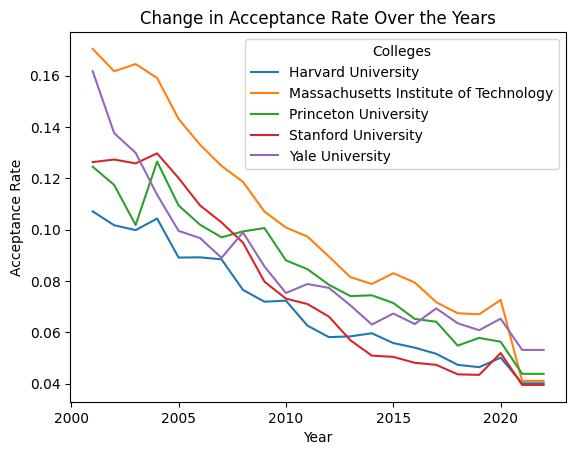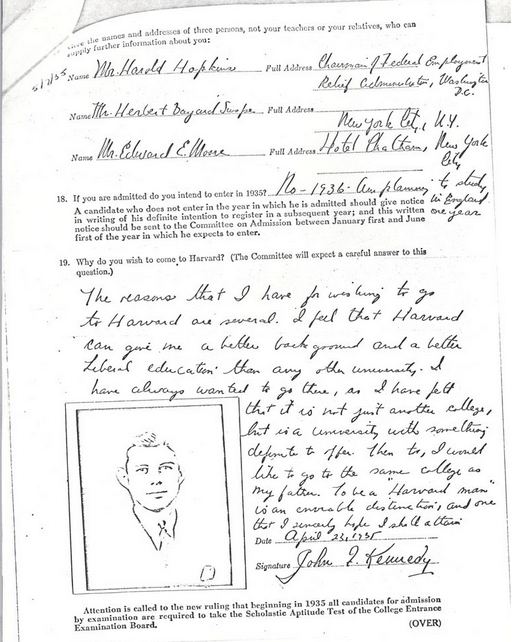I saw this going viral about college grade inflation:
Grade inflation is far worse than the chart above makes it look because college also became much much less selective. By 2012 the total *per capita* number of college As awarded to Americans was about 870% of the number in 1965, assuming equal class loads. pic.twitter.com/fkgEqr2EWb
— Ben Landau-Taylor (@benlandautaylor) November 3, 2024
He’s conflating many things. College was not necessarily more selective in the past, but rather much less common, as far fewer people bothered applying. This had the effect of making college appear more selective or exclusive, not that rejection rates were higher compared to today. Credentialism was also less of a factor, whereas now a degree is often essential for a good career and entry into the middle class. As a result, combined with generous financial aid, college enrollment rates have surged, making higher education far less exclusive than it once was.
However, today’s top colleges are considerably more selective and competitive compared to those same colleges generations ago. Acceptance rates have plunged:

Thus, today’s applicants are arguably smarter and better-prepared, such as taking advanced-level courses in high school and achieving top-percentile test scores. Students cannot be both increasingly coddled or held to lowered standards, and at the same time these top schools are more competitive and the bar for admissions is higher–these trends are inherently contradictory.
Many on the center-right cannot bring themselves to accepting the evidence that today’s elite college students are more meritocratic compared to in the past. An example I like to give is JFK’s Harvard admissions essay, which is short enough to fit on a postcard and is something conceivably a 6th grader could have written, yet in 1936 this was enough to gain admission to what was then—and still is—one of the most prestigious universities in the world. (Before you respond that his dad was wealthy, his essay filled the allotted space on the application–it was not expected of applicants to write long essays.) Nowadays, to have any hope, applicants need tons of extracurriculars and top test scores and GPAs, in addition to a much longer, professional-quality essay.
Math competitions used to be uncommon or an excuse to skip class, but are now increasingly high-stakes. This has given rise to tutoring services and coaching in an effort to increase one’s score to advance to higher levels of competition. If anything, the problem is not dumbing-down, but that the existing curriculum–even AP courses and taking calculus in high school–is not good enough anymore. To have any hope of distinguishing oneself requires good placings on difficult competitions that makes community college calculus a breeze by comparison (math competition problems, despite not requiring advanced-level math, are harder due to time limits and technique needed to find the shortcuts).
Same for the rise of DIY-coding; there are tons of college students who have GitHub profiles and for all intents and purposes are competent coders even before starting computer science classes, particularly for top STEM-centric schools like MIT or Stanford. This directly contradicts the common narrative on Twitter that prospective college students are unprepared. In reality, all evidence suggests that today’s incoming freshmen, especially at top colleges, are the most academically prepared and qualified of any generation.
A frequently cited statistic of grade inflation is the rise in average GPAs, suggesting that coursework or grading standards have become easier. However, an alternative explanation is that students are earning higher GPAs because they are smarter and better prepared, thanks to the increasingly competitive and selective admissions process at these institutions:

At the same time, such GPA inflation has not been observed with less selective colleges, which makes sense given the absense of selection effects.
Also, instead of looking at the awarded grade to measure grade inflation, it would be more useful to contrast the quality of work produced by today’s college students or the difficulty of the assignments today compared to in the past. If the quality and difficulty are unchanged, then this would be in agreement with the above argument of students being better prepared.
But given that the college dropout rate has remained constant or even increased in spite of increased enrollment, I’m skeptical that half of students are being awarded As or that grade inflation is as big of a concern at the collegiate-level as the Twitter narrative would suggest:

The trend instead is rampant secondary school grade inflation and near 100% graduation rates, whereas tertiary education has remained much more resilient to this trend.
On Reddit it’s not uncommon to read stories of today’s college students being assigned long reading lists or difficult problem sets in STEM courses, or having to write novella-sized theses. During the ’60s, assignments were likely shorter and easier, and expectations were lowered and less systematized or standardized compared to today. The accreditation process means colleges have to meet certian defined criteria or minimum standards of rigour. Cheating was also common. Plagiarism detection was limited by the teacher’s familiarity with the literature or repertoire, and was time consuming to adjudicate. Michael Crichton for example passed off an essay by Orwell unbeknownst to his instructor (Orwell was only deserving of a “B-” apparently). Nowadays, papers are uploaded online and can be automatically and instantly compared to huge databases of published work for matches or rewrites.
But in regard to coddling, I agree that special accommodations are out of control. It’s one thing to require assistance if you are wheelchair bound and cannot physically enter the building or need auditory or visual aids, but needing extra time becase you are easily distracted or find exams stressful, is a skill issue, not an accommodations one.
Despite the hype on Twitter and the confidence with which people speak on the matter, there is little evidence of a widespread decline in academic standards at the collegiate level. While high school grade inflation and lowered standards are well-documented, the same trend is not observed in higher education. The growing demand for college is driven more by economic realities—where a degree is increasingly seen as necessary—than a dilution of academic rigor.
